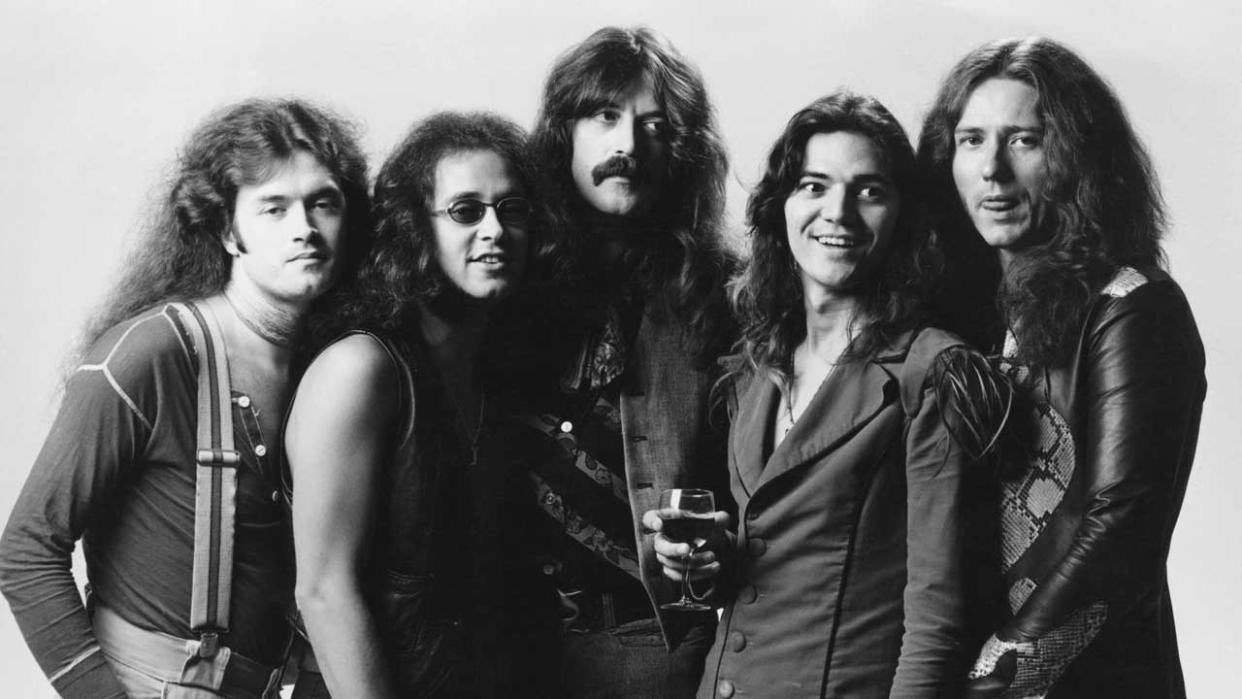"It appeared that he had fallen down an elevator shaft, but we knew that he was murdered": the traumatic story of Deep Purple's visit to Indonesia in 1975

- Oops!Something went wrong.Please try again later.
- Oops!Something went wrong.Please try again later.
Deep Purple’s Come Taste The Band album was not an album that took the charts by storm. The only studio collection released by the Mark IV lineup (David Coverdale, Glenn Hughes, Jon Lord, Ian Paice and incoming guitarist Tommy Bolin), it received unexceptional reviews and crept into the UK Top 20, but worse was to follow as the band went out on the road.
The trek started in the Pacific, where Deep Purple stopped over for a single show in Honolulu on the way to New Zealand. After two shows there, the band crossed the Tasman for a run of eight dates in Australia, and with a quartet of pre-Christmas Japanese shows lined up, the band also accepted an offer from an Indonesian promotor to play a show en route.
"It was a set-up," Deep Purple tour manager Rob Cooksey told writer Chris Charlesworth in his 1983 book Deep Purple: The Illustrated Biography. "The story from the word go was that we were due to play a theatre in Jakarta that held 7,000 people and, as we were on our way from Australia to Japan and had our own plane, it seemed like a good way to pick up some extra money."
The promoter wired an $11,000 deposit to book the band, but when Cooksey was shown the venue he was in for a surprise. The Senyan Sports Stadium stadium in Jakarta turned out to hold 125,000 people, two nights had been scheduled, the stage was built from orange boxes, and the security detail was provided by the army. Disturbed by the nature of what he found, Cooksey attempted to cancel the event, but was promised that a renegotiation would make him happy.
The first night proceeded, with Purple playing a set that opened with Burn, included a cover of Hoagy Carmichael's Georgia (On My Mind), and featured the debut performance of Soldier Of Fortune. With 100,000 fans in attendance, Cooksey calculated that the band's gross for the shows should have been in the region of $750,000. And he'd only received $11,000. So he demanded another meeting.
“It started off quite pleasantly and then developed into an argument," said Cooksey. "Then they left me alone. Very soon after that there was an incident on one of the floors and Patsy [Collins, one of the band's personal bodyguards] was killed after falling six floors down a lift shaft. He fell through these central heating and pipes and water ducts right through into the basement but it didn’t kill him instantly. He crawled out and got into a minibus outside the hotel and just murmured 'hospital, hospital'. He died shortly after that."
Cooksey, Glenn Hughes and a second Deep Purple minder known as 'Paddy the Plank', were taken away by police and informally charged in connection to Collins' death, before the latter pair were released in time for the second show, during which riot police armed with machine-guns and fierce dogs attacked and injured 200 fans.
“It’s my opinion it was a set up to get me out of the way,” reported Cooksey. “The band had to play again that night and they were quite literally taken from the hotel at gunpoint and pushed up on to the stage. They let Glenn out to do it but they’d only played for 20 minutes when the place went crazy."
The tour manager remained in jail overnight, and was only released after paying $2000 to retrieve the band's passports, which had been handed over so that copies could be made. Further trauma awaited the band at the airport, where the plane's captain demanded $10,000 so that a punctured tire could be fixed, while Deep Purple's lawyer – freshly arrived from Los Angeles to make sure the band got paid – was allegedly threatened with a machete when he asked for the money, before making his excuses and departing for the first available flight out.
Late Deep Purple keyboardist Jon Lord was convinced that Collins' death had been no accident. "It appeared that he had fallen down an elevator shaft, but we knew that he was murdered," he told Guitar World in 1999. "It was after that first night that Patsy was murdered. The promoter never paid us. He took all the money and had us deported. He had our tour manager, one of the roadies and our bassist, Glenn Hughes, locked up on suspicion of murder."
In 2015, Hughes announced that he'd return to Jakarta to mark to 40th anniversary of Collins' death and to play a solo show. And four years later, Deep Purple published an updated trailer for an unfinished film about the experience, working title 1975. It remains unreleased.
An updated, signed deluxe version of Chris Charlesworth's Deep Purple biography is published on October 23. It's available to pre-order.

